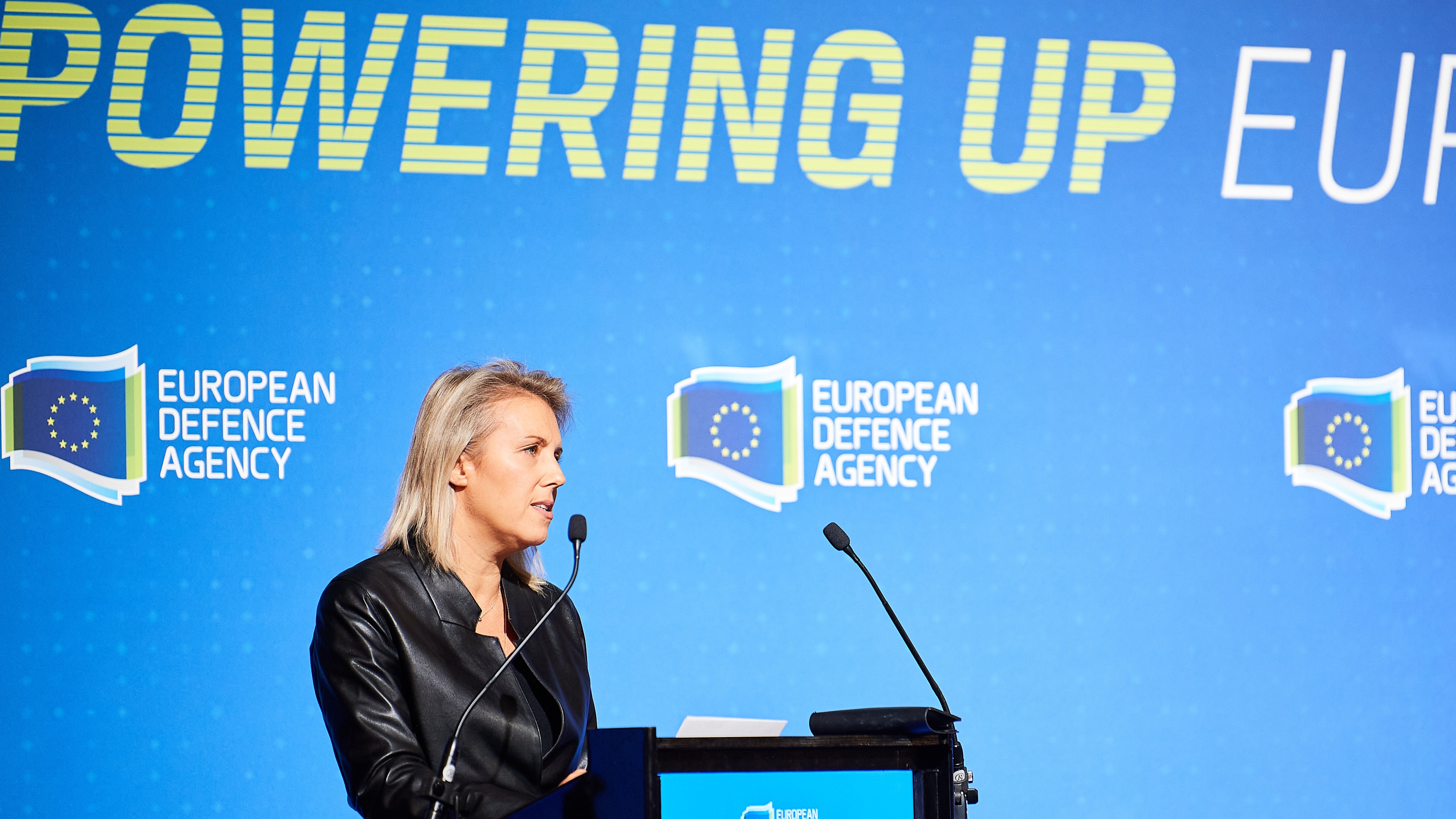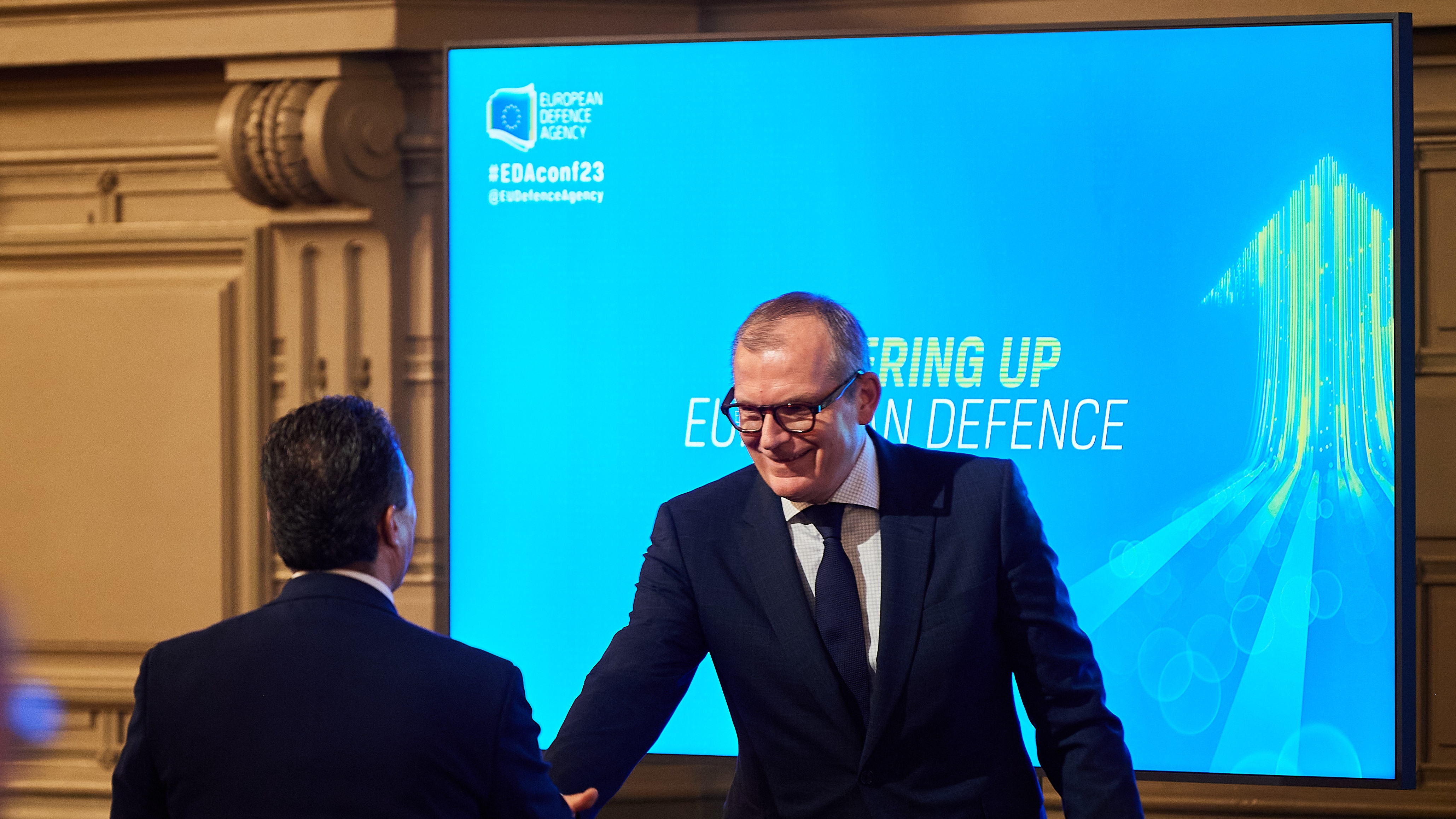The European Union should consider ‘European defence bonds’ to fund investment in European defence and security as part of a new push for deeper military coordination, the President of the European Council Charles Michel told the European Defence Agency’s annual conference.
Member states should pool what could amount to €600 billion in defence investment over the next 10 years, Michel told the conference, urging for better coordination of how it is to be spent. He also proposed a European cyber force equipped with offensive capabilities to counter attacks through computer networks.
“We must fortify our European continent. We must beef up our European defence,” Michel told the 300 delegates gathered in Brussels, who included European Ministers of Defence, EU lawmakers, members of Europe’s armed forces, defence industry representatives and experts.
Michel said European defence bonds would be an attractive asset class, including for retail investors. Michel also said the time was ripe to channel more military investment and activities into a combined European effort to defend the EU’s values of liberal democracy.
“The idea of EU defence is not new,” Michel said. “Russia’s invasion have injected a new urgency. Our ambition must match the urgency (of the moment).”
No more ‘peace dividend’
Belgium’s Minister of Defence Ludivine Dedonder warned that, given that the war in Ukraine was likely to last for some time, the EU must strengthen its industrial base.

“We must consider that our security needs real investment in a defence capability that is sufficiently robust to act as a deterrent and sufficiently resilient to support a war effort if required," she told the conference. Belgium will take over the EU Presidency of the Council of the European Union in January.
“Our major challenge will be continue to rebuild our defence capabilities.” Minister Dedonder outlined how she took over a defence ministry that had been badly underfunded, but that was now changing.
Cyprus Minister of Defence Michalis Giorgallas said: "In recent years, Cyprus' defence SMEs have specialized in cutting-edge technologies such as cyber-defence, tactical to strategic communications, maritime surveillance, intelligence, and unmanned vehicles."
Both ministers said the EU should be more independent. Eric Beranger, Chief Executive Officer, MBDA Missile Systems, highlighted that more than 70% of European orders for military assets and equipment are made outside of Europe. Only about 30% are procured inside Europe, he said. "Europe will become more autonomous when this ratio is reversed. This is what will break the vicious circle."
-cropped.jpg)
EDA’s Chief Executive Jiří Šedivý underscored the work that EU Member States already engage in, but called for deeper integration. He also argued for sharper, higher-end, full-spectrum capabilities along the lines of the Agency’s newly agreed Capability Development Priorities.
“If I have one message for you today, it is that we cannot continue in EU defence as we did before, with the mentality of peace time. We have lived too long on the peace dividend,” Šedivý told the conference. “Never before have we had such a convergence with the NATO priorities,” he added.

‘Different planets’
During the conference’s first panel, Nathalie Loiseau, Chairwoman of the European Parliament Subcommittee on Security and Defence, shared President Michel’s urgency. She called for the EU to move closer to something resembling a war footing in its support for Ukraine. She also urged EU Member States to dedicate more shared funds to defence.
“We do need to increase the money for the European Defence Fund,” she said, noting that the €8 billion in the EDF for the 2021-2027 period is less than the €13 billion originally proposed. She said that the European budget for defence amounted to €4 a year per European citizen.
Christian Molling, Deputy Director, German Council on Foreign Relations, told the conference that there were still big issues to address. He said that over the past two decades, EU institutions, defence companies and governments were on “different planets” and that their goals were not aligned.
He said EDA was trying to bridge the gaps, also with NATO. “Future conflict is not 2024. Future conflict is tomorrow and preparation is today,” he warned.
Reacting to Michel’s prediction of the €600 billion in future defence investment, Molling said: “The demand in Europe is tremendous. Take the economic risk now to evade the military risk later.”